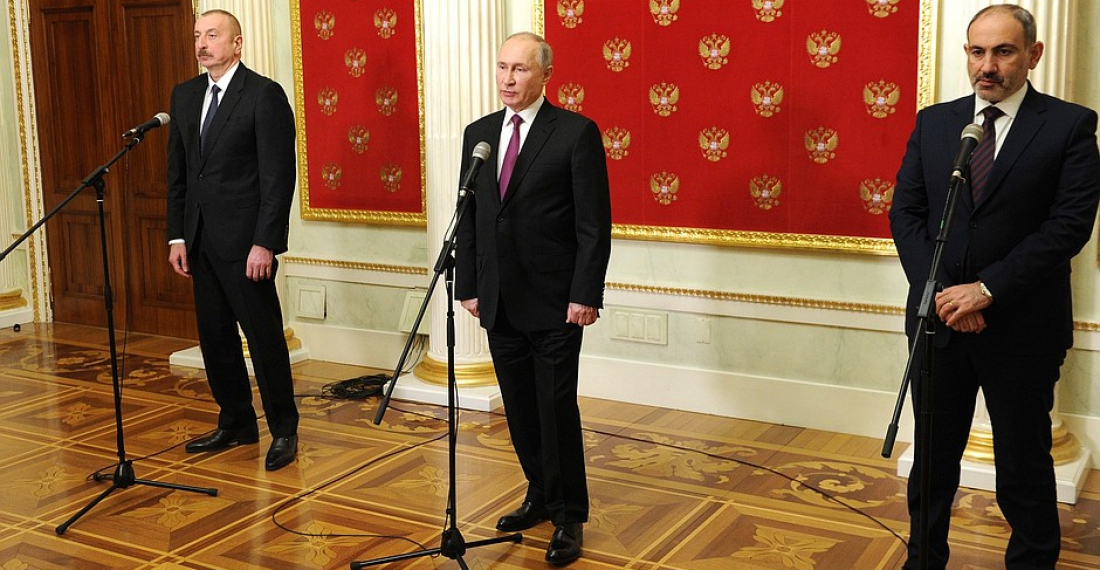Under the firm chairmanship of the Russian president Vladimir Putin, the leaders of Armenia and Azerbaijan met yesterday in Moscow for the first time since the war in Karabakh in the autumn.
Discussions focused on issues emerging from the 10 November declaration which stopped the fighting, and particularly on the clauses related to the restoration of transport links.
In comments to the media after their four hour meeting, both Aliyev and Pashinyan thanked Putin for the initiative to organize the trilateral meeting, as well as, in general, for efforts to resolve the conflict in Nagorno-Karabakh and restore stability and security in the region. According to the President of Azerbaijan, the very fact of the negotiations suggests that the parties to the conflict are "set for a result", to "draw a line" under the events of September-November 2020.
According to Aliyev, the joint statement on the ceasefire is being carried out successfully, "the Russian peacekeeping mission is doing its job effectively, and for two months, with the exception of minor incidents, there were no serious reasons for concern." All this, according to the President of Azerbaijan, instills confidence that "the Nagorno-Karabakh conflict is in the past" and we need to think about the future, "about how to live together in the neighborhood."
In turn, Pashinyan believes that "this conflict has not yet been resolved." "We have managed to secure the ceasefire, but there are still a lot of issues that must be resolved," he said, naming the status of Nagorno-Karabakh as one of such topics. Among the most painful, Pashinyan also referred to humanitarian issues and the problem of exchange of prisoners of war, noting that this point of the November joint statement of the leaders "is not fully implemented." The Prime Minister of Armenia, however, expressed the hope that the parties "will be able to come to a concrete decision in the shortest possible time."
So it seems that there is no agreement as to whether the conflict is resolved or not. Azerbaijan is willing to accept the status quo de facto, although it still claims those parts of Karabakh still under the control of Armenians. For the Armenians the status of Karabakh remains an important issue since they hope that they can salvage something after their military defeat, through political negotiations in the framework of the OSCE Minsk Group.
Everyone is excited about the prospect of opening up the transport corridors - something which can be extremely important for the future of the region. But there is a danger some of those involved may get ahead of themselves. Two months after the end of hostilities issues related to prisoners and missing persons remain unresolved. There are also many details to be worked, all of which can easily escalate into a crisis. The meeting in Moscow was a positive step, and once more showed Russia's commitment to seeing this process through, but regardless if it is a conflict or note, Karabakh will remain a contentious issue for many years to come.







